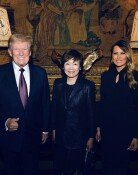Korea expands ‘Evusheld’ rollout to patients with solid cancer
Korea expands ‘Evusheld’ rollout to patients with solid cancer
Posted November. 15, 2022 07:47,
Updated November. 15, 2022 07:47
The disease control authorities expanded the ‘Evusheld’ rollout on Monday to respond to the seventh wave of the COVID-19 pandemic this winter.
The Korea Disease Control and Prevention Agency expanded the target for the COVID-19 drug from people with a low level of immunity, such as blood cancer patients, transplant recipients, and people with congenital immunodeficiency to include those with solid cancer, HIV, and rheumatism. Patients who are receiving treatment for severely weakened immunity, including chemotherapies and B-cell depletion therapy, are eligible for the injection.
The government decided to increase the Evusheld dosage from 300 mg to 600 mg per injection to deal with the Omicron variants. Those who were administered a shot of 300 mg within three months can have an additional shot of 300 mg. Unlike vaccines that help the body to create antibodies by itself, Evusheld injects already-created COVID-19 antibodies into the body. This is why it is for patients with difficulties forming antibodies themselves.
Still, the immunization rate of COVID-19 vaccines in this winter season stays low. The figure for people aged 60 or over stands only at 10.3 percent, and that for those aged between 18 and 59 is 0.4 percent as of Monday. “The winter vaccination rate of people aged 60 or over is even lower than the U.S. (26 percent),” said Jeong Ki-seok, head of the government’s COVID-19 Special Response Team, in the press briefing on Monday. “Some say the wave coming this winter will be just fine as last summer, which saw 180,000 confirmed cases a day at maximum, but there are higher risks of developing severe symptoms in winter.”
Keun-Hyung Yoo noel@donga.com
Headline News
- Joint investigation headquarters asks Yoon to appear at the investigation office
- KDIC colonel: Cable ties and hoods to control NEC staff were prepared
- Results of real estate development diverged by accessibility to Gangnam
- New budget proposal reflecting Trump’s demand rejected
- Son Heung-min scores winning corner kick







